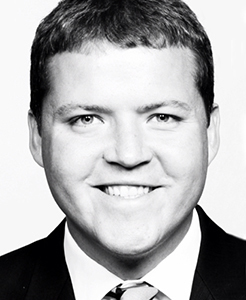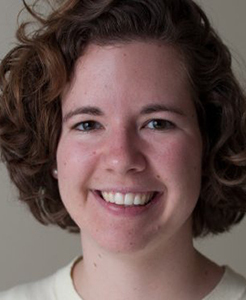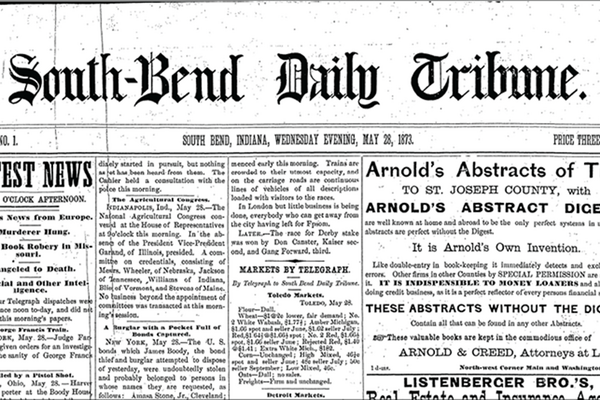University of Notre Dame graduates Jimmy Bettcher ’07 and Emily Dore Yuhas ’10 are just two examples of the many ways history majors can thrive in the business world. Yuhas works for a startup technology company developing e-learning courses, while Bettcher manages corporate social responsibility initiatives at Cummins, Inc.
Despite the differences in their roles, Yuhas and Bettcher each found success in their fields by relying on the skills they learned in their history courses—how to research, write, solve problems, and think critically.
Notre Dame history majors pursue myriad career paths, from business and investment banking to law, journalism, medicine, and politics, said Dan Graff, director of undergraduate studies in the department.
“There’s a stereotype among the general public that history majors become professional historians or teach history or social studies,” Graff said. “But very few of our majors end up doing those things.”
A Valuable Worldview
 Jimmy Bettcher
Jimmy Bettcher
Bettcher developed an interest in international development and emerging markets as he pursued his history degree in Notre Dame’s College of Arts and Letters. He learned to think critically about the context and origins of large-scale societal problems—a skill he uses often as a strategic analyst and program manager for corporate responsibility at Cummins.
“If we’re looking to address a problem in Nigeria, India, or South Africa, for example, I think through the root cause and the contributing factors, so that I can understand the history behind it,” said Bettcher, who works in Indianapolis but often travels internationally for work. “That is really valuable—being able to examine the context of the situation in order to identify the best solution.”
Bettcher started his role at Cummins in 2012, after receiving his MBA from the Kelley School of Business at Indiana University. Before graduate school, he worked in Uganda for a year and a half, managing community development projects for the Congregation of Holy Cross. He also spent time leading a refugee support program back in South Bend.
“I took a portfolio approach—building off the skills I learned as a history major by getting practical, on-the-ground work experience, and then hard, technical skills from my MBA,” Bettcher said. “The history major is a tremendous foundation for almost anything you may be interested in.”
A Creative Mindset
 Emily Dore Yuhas
Emily Dore Yuhas
At Mindset Digital in Columbus, Ohio, Yuhas also must think contextually as she designs compelling and interactive online courses for Fortune 500 clients looking to educate their employees on social media and digital trends.
Yuhas, who speaks fluent Italian, says her history coursework allowed her to better understand people across time and places, developing a keen awareness of the world and its stories. That mindset has proven valuable in her current role, she said.
“I also constantly rely on the skills I honed when researching and writing papers at Notre Dame,” Yuhas said.
Yuhas was drawn to the business technology field as she finished her master’s degree at Ohio State University. When she began looking for work, she found potential employers— especially startup companies—appreciated her history background.
“Startups are often looking for someone who can jump in, make a difference, and be flexible,” Yuhas said. “When you’re a history major, you are so flexible in what you can do, and startups are a great fit.”
A World of Possibilities
Yuhas and Bettcher enjoy sharing their insights and career paths with current Notre Dame history students. Both returned to campus last fall to offer career advice and network with history majors as part of the “History 20/20” series.
Founded by Graff in 2012, the series connects students with history alumni to expose students to the variety of careers available. Speakers this year have included Bettcher; Peter Balestracci ’11, a project manager at Epic; Chris Hine ’09, a sports writer for the Chicago Tribune; and John “Al” Hosinski ’96, senior program officer in the Africa Department at the Solidarity Center, a non-profit international worker rights organization in Washington, D.C.
“The program can open the minds of current students and empower them to think, ‘I don’t have to follow one certain path,’” Graff said. “History is not a limiting major—it’s an expanding one.
Emily and Jimmy are great examples of that.”


